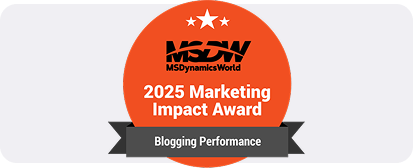Top Odoo Alternative in Canada | 2025 Competitors
As businesses across Canada from the hectic tech hubs of Toronto to the manufacturing centers of Ontario continue to digitize their operations, the demand for flexible and cost-effective ERP is growing. While Odoo has gained popularity for its modular design and open-source flexibility, many Canadian companies are now exploring the best Odoo alternative products that better align with their industry-specific needs, scalability goals, or budget constraints.
Whether you're a startup in downtown Toronto or a growing enterprise in rural Ontario, understanding your options is key. This guide explores the top alternatives to Odoo, comparing features, deployment models, and use cases to help you find the right Odoo ERP alternative for your business. We’ll also touch on Odoo pricing and how it stacks up against other leading platforms in the market.
If you're searching for the best Odoo alternatives in Canada, this article is your starting point.
What is Odoo?
Odoo is an open-source business software suite with integrated apps for managing operations like sales, accounting, inventory, HR, and more. It's modular, scalable, and available in both free (Community) and paid (Enterprise) editions.
However, Odoo comprises some drawbacks which has caused businesses to look beyond this business management solution.
These drawbacks include complex initial setup for large businesses, costly customization with heavy technical expertise requirements, performance issues with large datasets or multiple users, limited support in the Community version, and disruption issues due to frequent updates.
Microsoft Dynamics 365, SAP ERP, Oracle NetSuite, Zoho ERP, and ERPNext are some close competitors of Odoo, all of which offer more specialized capabilities and smoother ERP implementation paths.
Why consider an Odoo Alternative?
Switching from Odoo to another ERP system can be a strategic move, particularly for businesses in Canada with specific industry or compliance needs. Here’s why:
Complexity & Customization
- Odoo often requires technical expertise and developers to configure.
- Deep customization can hinder upgrades.
Cost Concerns
- The free Community Edition lacks support, while Enterprise can become expensive.
- Odoo pricing (starts at €19.90 per user/month approx. CAD $44.30) can escalate quickly when more modules or users are added.
Scalability & Performance
- Odoo may struggle with performance under high data volumes.
- Large businesses need a more scalable ERP solution.
Integration Needs
- Businesses in Toronto and Ontario using tools like Salesforce or QuickBooks may find Odoo integration difficult.
- Some Odoo alternatives offer plug-and-play integrations.
Industry-Specific Features
- Odoo is general-purpose. Many sectors, such as healthcare, manufacturing, or logistics, require tailored solutions.
Odoo Alternatives: Little overview
|
ERP Solutions |
Key Features |
Best For |
Deployment |
|
Microsoft Dynamics 365 |
Modular apps (Finance, Sales, SCM), AI integration, strong MS ecosystem |
Midsize to large enterprises |
Cloud and On-premises |
|
ERPNext |
Open-source, customizable, built-in modules (HR, CRM, MFG) |
SMEs, startups, developers |
Cloud & On-premises |
|
Oracle NetSuite |
Comprehensive suite, strong financials, global compliance |
Growing businesses, global operations |
Cloud-only |
|
SAP Business One |
Inventory, production, CRM, analytics, SAP HANA support |
SMEs with complex needs |
Cloud & On-premises |
|
Acumatica |
Industry editions (MFG, Construction), mobile-first, flexible licensing |
Midsize businesses, growing companies |
Cloud & Hybrid |
|
Zoho One |
45+ integrated apps (CRM, HR, Finance), automation, AI tools |
Small to midsize businesses |
Cloud-only |
|
QuickBooks Online |
Accounting-focused, invoicing, payroll integrations |
Small businesses, freelancers |
Cloud-only |
|
Epicor ERP |
Manufacturing-focused, supply chain, analytics |
Manufacturing, distribution, project-based |
Cloud & On-premises |
|
MRPeasy |
Lightweight MRP, BOM, inventory, shop floor control |
Small manufacturers |
Cloud-only |
|
ClickUp |
Project management, task tracking, docs, automation |
Teams needing collaboration + light ERP |
Cloud-only |
Top 10 Odoo Alternatives for 2025
While Odoo is a powerful and flexible ERP solution, it may not suit every business. Whether due to specific feature needs, budget constraints, or scalability concerns, many organizations explore other platforms. Below is a list of top alternatives to Odoo that offer competitive features and may better align with different business requirements.
Microsoft Dynamics 365
Microsoft Dynamics 365 is a suite of intelligent business applications that unify CRM and ERP capabilities into a single platform. It’s designed for medium to large enterprises looking for deep integration with Microsoft tools like Office 365, Teams, and Azure.
Key Features:
- Finance, Sales, HR, and Supply Chain modules
- AI-driven insights and automation
- Seamless integration with Microsoft ecosystem
Pros:
- Scalable for enterprises
- Strong analytics and reporting
- Excellent user interface
Cons:
- High cost for small businesses
- Complex implementation
Also Read: Manufacturing ERP
ERPNext
A free, open-source ERP system ideal for small to medium-sized businesses, especially in manufacturing and services.
Key Features:
- Accounting, HR, CRM, Inventory, Manufacturing
- Web-based and mobile-friendly
- Customizable with Python and JavaScript
Pros:
- Free and open-source
- Active community
- Easy to use
Cons:
- Limited third-party integrations
- Requires technical knowledge for customization
Also Read: ERP Finance
Oracle NetSuite
A cloud-based ERP solution designed for fast-growing businesses and enterprises, offering a wide range of business management tools.
Key Features:
- Financials, CRM, eCommerce, Inventory
- Real-time dashboards and analytics
- Global business management
Pros:
- Highly scalable
- Strong financial management tools
- Cloud-native
Cons:
- Expensive
- Steep learning curve
Also Read: Oracle Alternative
SAP Business One
A robust ERP solution tailored for small and medium-sized enterprises, offering deep functionality in finance and operations.
Key Features:
- Financials, Sales, Inventory, Purchasing
- Real-time analytics
- Integration with SAP HANA
Pros:
- Reliable and secure
- Strong reporting tools
- Industry-specific solutions
Cons:
- High implementation cost
- Less intuitive UI
Also Read: SAP Alternative
Zoho One
An all-in-one business suite that includes over 40 integrated applications for CRM, finance, HR, and more.
Key Features:
- CRM, Finance, HR, Project Management
- AI-powered analytics
- Cloud-based and mobile-ready
Pros:
- Affordable
- Easy to use
- Great for small businesses
Cons:
- Not a full ERP
- Limited customization
Also Read: CRM System
Acumatica
A cloud-based ERP platform known for its flexibility and user-friendly interface, suitable for mid-sized businesses.
Key Features:
- Financials, CRM, Project Accounting
- Mobile access
- Industry-specific editions
Pros:
- Flexible pricing
- Modern UI
- Strong customer support
Cons:
- Limited global presence
- Some features require third-party apps
QuickBooks Online
A popular accounting software with basic ERP-like features, ideal for small businesses and freelancers.
Key Features:
- Invoicing, Expense Tracking, Payroll
- Integration with banks and apps
- Cloud-based
Pros:
- Easy to set up
- Affordable
- Strong accounting features
Cons:
- Limited ERP functionality
- Not suitable for complex operations
Also Read: Business Central vs QuickBooks
Epicor ERP
A robust ERP system designed for manufacturing, distribution, and retail industries.
Key Features:
- Supply Chain, Manufacturing, Financials
- Industry-specific modules
- Cloud and on-premise options
Pros:
- Deep industry focus
- Scalable
- Strong support
Cons:
- Complex setup
- Higher cost
ClickUp
A productivity and project management tool that can serve as a lightweight ERP for service-based businesses.
Key Features:
- Task Management, Time Tracking, Docs
- Custom dashboards
- Integrations with major tools
Pros:
- Highly customizable
- Great UI/UX
- Affordable
Cons:
- Not a traditional ERP
- Limited financial tools
MRPeasy
A lightweight ERP solution for small manufacturers, offering essential tools for production and inventory management.
Key Features:
- Production Planning, Inventory, CRM
- BOM and MRP support
- Cloud-based
Pros:
- Affordable
- Easy to use
- Tailored for small manufacturers
Cons:
- Limited scalability
- Basic reporting
Odoo ERP Alternatives: Pricing Comparison
|
ERP Solutions |
Pricing Details |
|
Microsoft Dynamics 365 |
Varies by module. |
|
ERPNext |
Starts at $50/month for small businesses. |
|
Oracle NetSuite |
Base license starts at $999/month + $99 to $149/user/month |
|
SAP Business One |
Highly variable. |
|
Zoho One |
$90/user/month (flexible) or $37/employee/month (all-employee plan) |
|
Acumatica |
Starts at $6000/year for basic edition. |
|
QuickBooks Online |
Simple Start: $38/month Essentials: $75/month Plus: $115/month Advanced: $275/month |
|
Epicor ERP |
Starts at $175/user/month, varies by modules and deployment |
|
ClickUp |
Free Forever: $0 Unlimited: $10/user/month Business: $19 Enterprise: Custom pricing |
|
MRPeasy |
Starter: $49/user/month Professional: $69 Business: $99 Unlimited: $149 |
How to choose the best ERP system for your business?
Choosing the best ERP system for your business is a strategic decision that depends on your company’s size, industry, goals, and technical capabilities. Here's a step-by-step guide to help you make the right choice:
Define Your Business Needs
- Identify the core processes you want to manage (e.g., accounting, inventory, HR, CRM).
- Consider current pain points and future growth plans.
- Decide if you need industry-specific features (e.g., manufacturing, retail, healthcare).
Set a Budget
- Include costs for licensing, implementation, training, support, and maintenance.
- Consider both upfront and long-term costs (cloud vs. on-premise).
Choose Deployment Type
- Cloud-based: Lower upfront cost, easier updates, accessible anywhere.
- On-premise: More control, better for companies with strict data policies.
- Hybrid: Combines both for flexibility.
Evaluate Key Features
Look for:
- Modularity: Can you add/remove features as needed?
- Integration: Does it work with your existing tools (e.g., CRM, e-commerce)?
- Customization: Can it be tailored to your workflows?
- User Interface: Is it intuitive and user-friendly?
Assess Vendor Reputation and Support
- Check reviews, case studies, and customer testimonials.
- Evaluate the quality of customer support and training resources.
- Consider the vendor’s experience in your industry.
Consider Scalability and Flexibility
- Will the ERP grow with your business?
- Can it handle increased users, data, and complexity?
Request Demos and Trials
- Test usability, performance, and fit with your team.
- Involve key stakeholders in the evaluation process.
Ready to Upgrade from Odoo? Discover Why Canadian Businesses Choose Dynamics 365
Looking for an Odoo ERP alternative that scales with your business and offers robust local support? Many companies in Canada are turning to Microsoft Dynamics 365 and Business Central for their reliability, strong features, and regional expertise.
At Dynamics Square Canada, we help businesses switch from Odoo to Dynamics 365, ensuring a seamless transition and ongoing success.
- Local ERP Experts – Based in Toronto, serving all of Ontario and beyond
- Tailored Solutions – Designed for your industry and business size
- Eligible for Canadian SMB Tech Grants
- Smooth ERP Implementation and migration support
Book Your Free Dynamics 365 Consultation
Call us at +1 289 807 0740
Email: info@dynamicssquare.ca
Schedule Your Free Dynamics 365 Consultation
.jpg)


